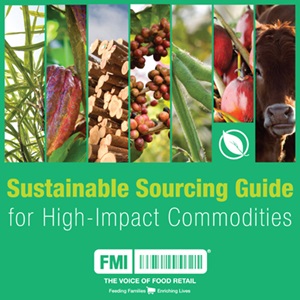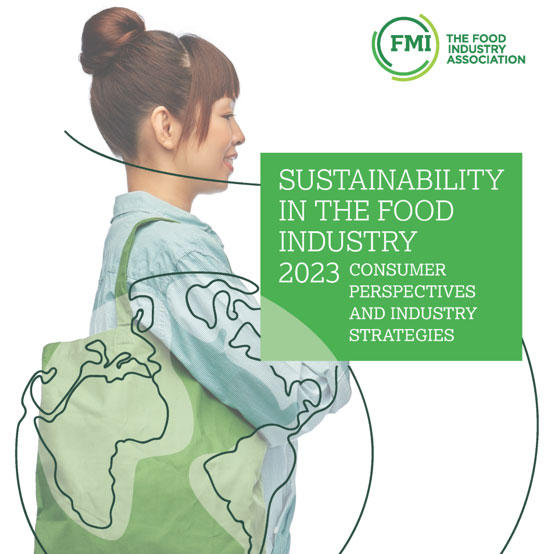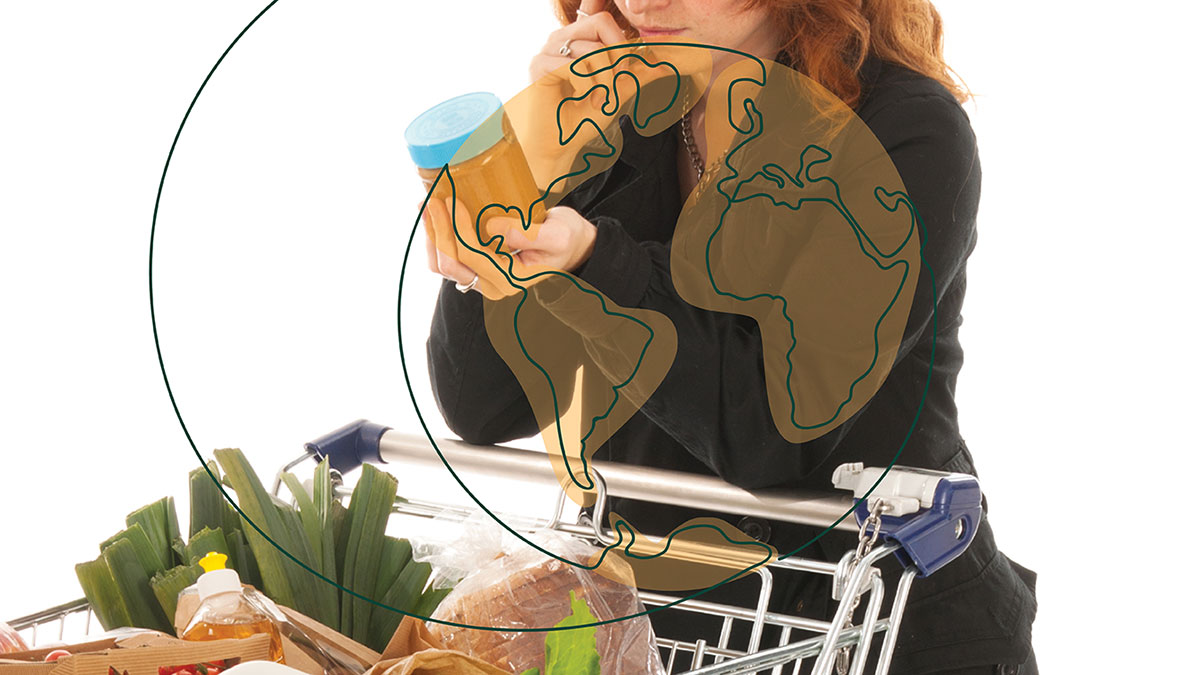By: Jeanne von Zastrow, Senior Director for Sustainability, Food Marketing Institute

We’re hearing a lot of buzz about sustainable sourcing lately, but what is it? Sustainable sourcing of commodities or finished goods extends beyond traditional cost and supply metrics and ensures that the economic, environmental and social aspects of the global supply chains are responsibly and ethically managed.
For the food retail industry, sustainable sourcing is becoming an important issue. In a world defined by climate change and explosive population growth with limited natural capital, how do we avoid the development of a scarcity driven food economy? I asked Joseph Berman, manager of corporate social responsibility from Price Chopper Supermarkets, and a member of FMI’s Sustainability Executive Committee, to respond to this question. He shared, “While there is no single silver bullet solution to these issues, a concerted industry wide movement toward sustainable sourcing will provide significant reductions to the environmental impacts associated with food and food related consumer goods production.”
So, how do food retailers get started on sustainable sourcing? The FMI Sustainable Sourcing Guide for High-Impact Commodities is designed to help food retailers take measured steps towards sustainable sourcing. This straightforward guide was developed by more than 18 FMI members serving on the Sustainability Executive Committee. The Sustainable Sourcing Guide gives a simple overview of each high-impact commodity including sugarcane, coca, paper/pulp, coffee, soy, palm oil and beef. Each one-page overview provides:
- Facts on the commodities environmental impact;
- Questions for food retailers to consider for sustainable sourcing; and
- Product certification opportunities.
This succinct, eight-page resource can help any food retailer get started on sustainable sourcing. In addition to the new Sustainable Sourcing Guide, FMI has several other resources to help food retailers with sustainable sourcing efforts. Our webpage www.fmi.org/SustainableSourcing is your one-stop-shop for sustainable sourcing resources, including:
- Making the Business Case for Sustainability;
- Sustainability on The Shelves Guide;
- Fisheries Improvement Partnerships; and
- Sustainable Seafood Toolkit.


 Industry Topics address your specific area of expertise with resources, reports, events and more.
Industry Topics address your specific area of expertise with resources, reports, events and more.
 Our Research covers consumer behavior and retail operation benchmarks so you can make informed business decisions.
Our Research covers consumer behavior and retail operation benchmarks so you can make informed business decisions.
 Events and Education including online and in-person help you advance your food retail career.
Events and Education including online and in-person help you advance your food retail career.
 Food Safety training, resources and guidance that help you create a company food safety culture.
Food Safety training, resources and guidance that help you create a company food safety culture.
 Government Affairs work — federal and state — on the latest food industry policy, regulatory and legislative issues.
Government Affairs work — federal and state — on the latest food industry policy, regulatory and legislative issues.
 Get Involved. From industry awards to newsletters and committees, these resources help you take advantage of your membership.
Get Involved. From industry awards to newsletters and committees, these resources help you take advantage of your membership.
 Best practices, guidance documents, infographics, signage and more for the food industry on the COVID-19 pandemic.
Best practices, guidance documents, infographics, signage and more for the food industry on the COVID-19 pandemic.
